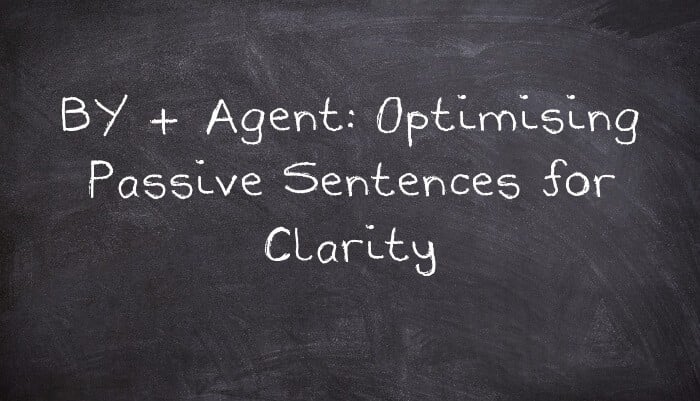When do we use BY + Agent in the Passive
Passive voice is a grammatical construction that is commonly used in the English language. However, in many cases, the inclusion of the agent (the entity performing the action) after the verb is not required. In other words, many English passive sentences do not contain BY + Agent after the verb. In fact, it has been estimated that 80% of passive verbs don't include the agent [1], so a basic rule would be to omit wherever possible.
There are cases where its use would be regarded as wrong or, at best, uncomfortable:
- Example: "My wallet was stolen by someone."
Here the use adds no information other than the fact that the thief was human. It is completely unnecessary and sounds wrong. The same is true of examples where the subject is too obvious, such as "I was born by my mother".
There are examples given in books that are correct but very limited:
- Example: "Hamlet was written by Shakespeare."
This sentence is grammatically correct, it becomes cumbersome when additional information is incorporated. If we were to add the date or reason behind the writing, then the agent would probably be best omitted. In the example given, it is necessary because 'Hamlet was written.' makes little sense as a standalone sentence.
On the other hand, there are situations where including the agent is essential for conveying the intended meaning:
- Example: "Many car accidents are caused by alcohol."
Here the agent is necessary as it adds something to the sentence and the meaning would be lost without it. In cases like this, where the agent is essential to create the meaning, it must be included. Conversely, when the agent contributes little or nothing, it is better to leave it out.
By employing these guidelines, writers can create passive sentences that are clear, concise, and effectively convey the desired information. Remember, omitting the agent in passive constructions whenever possible contributes to a more streamlined and efficient use of the English language.
References:
- Shintani, M. (1979). The frequency and usage of the English passive. Dissertation Abstracts: Section A. Humanities and Social Science, 405427A. (Unpublished Dissertation).
